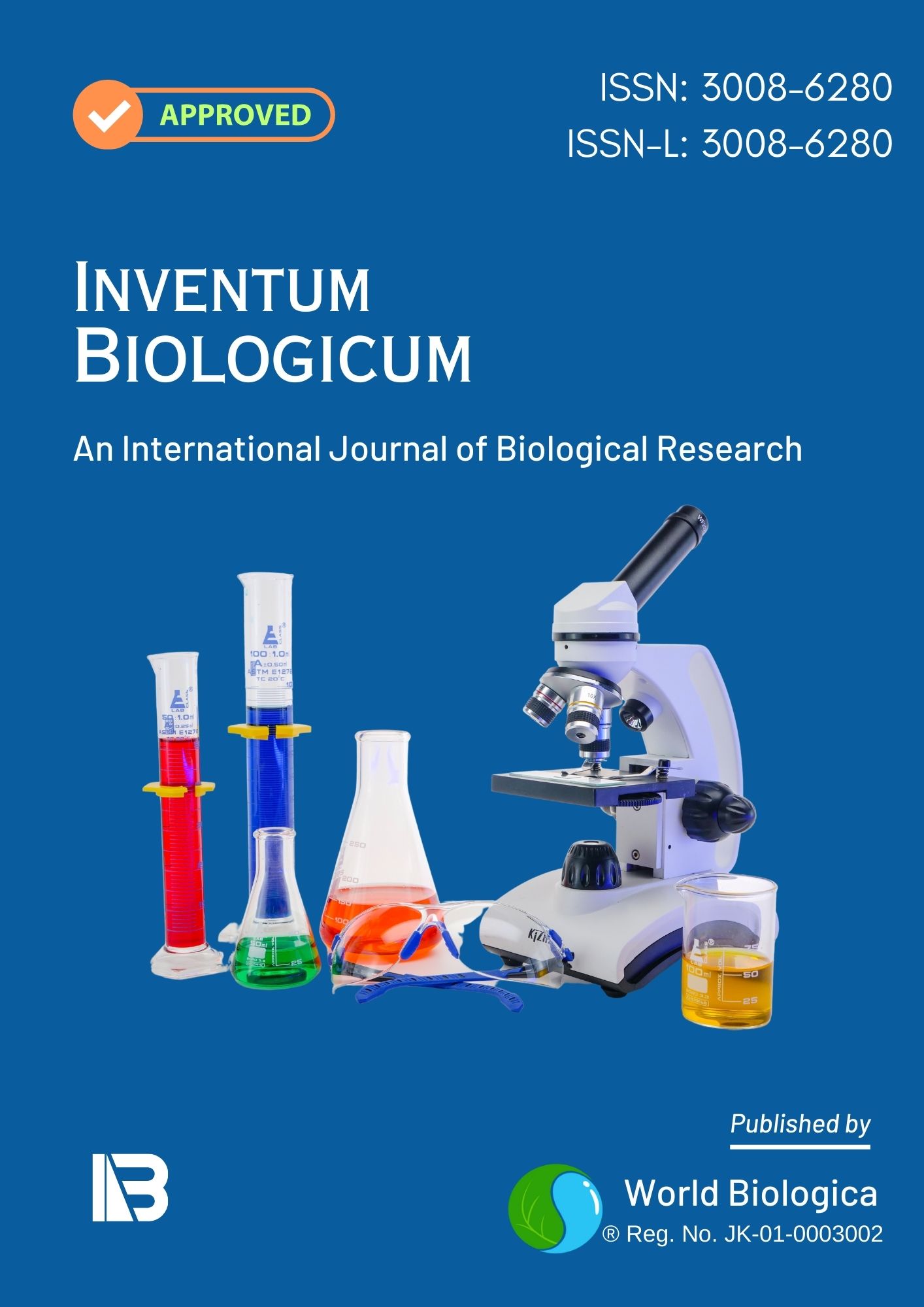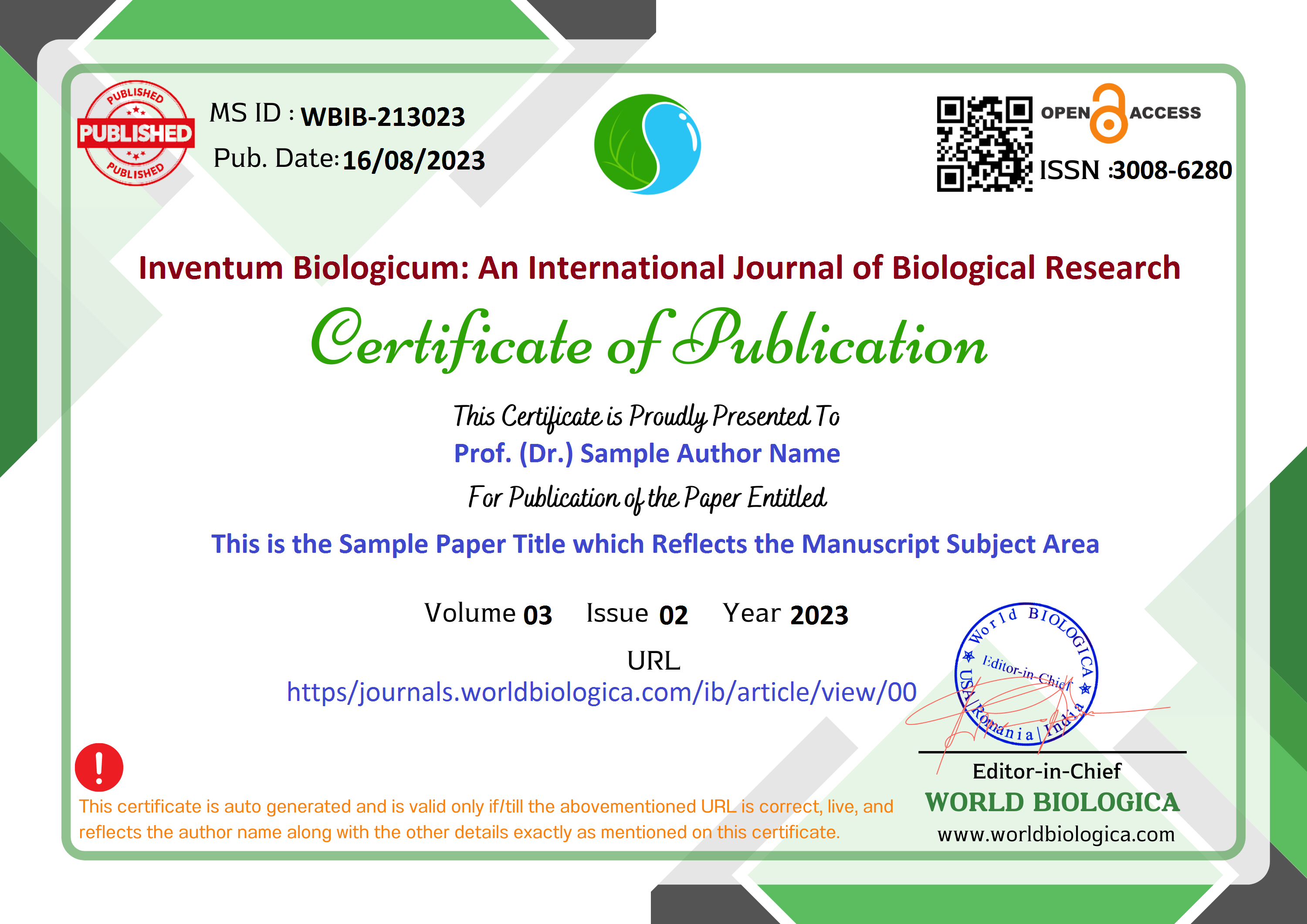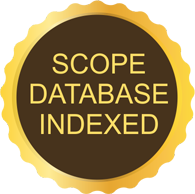Holistic Therapy – An Integrative Approach to Physical and Mental Wellbeing
Keywords:
Holistic Therapy, Integrative Approach, Physical-Mental Wellbeing, Methodologies, Holistic Practices, OutcomesAbstract
Holistic therapy has gained prominence as a complementary approach to conventional medical treatments. It emphasizes the interconnection between the body, mind, and spirit, aiming to achieve overall wellness. This article delves into the effectiveness of holistic therapy, drawing on current research and critical perspectives to evaluate its role in promoting health and well-being. Holistic therapy, an integrative approach to physical and mental well-being, encompasses a range of practices that address the individuals as a whole, rather than focusing on isolated symptoms. This research article explores the efficacy of holistic therapy in improving physical and mental health outcomes, examining various modalities including acupuncture, yoga, meditation, and naturopathy. Critiques from contemporary researchers and practitioners are analysed to provide a balanced perspective on the benefits and limitations of holistic therapy. This research article depicts the impact and results of holistic therapies on physical and mental well-being, critically analysing the methodologies and outcomes of various holistic practices.
Downloads
References
Ali, American Hospital Association (2021). Survey on complementary and alternative medicine in hospitals. American Hospital Association Report.
T. Brown, (2020). Holistic healing: A comprehensive approach. Health Press, P.45.
B. Cooke, & E. Ernst (2000). Aromatherapy: A systematic review. British Journal of General Practice, 50(455), pp. 493-496.
B. R. Cassileth & G. Deng (2004). Complementary and alternative therapies for cancer, The Oncologist, 9(1), pp.80-89.
H. Cramer, R. Lauche, J. Langhorst & G. Dobos (2017). Yoga for depression: A systematic review and meta-analysis. Depression and Anxiety, 34(6), pp. 622-632.
B. M. Dossey & L. Keegan (2016). Holistic nursing: A handbook for practice. Jones & Bartlett Learning.
A. Dillard (2020). Mindfulness and mental health: Integrative approaches. San Francisco. CA: Harmony Books.
G. L. Engel (1977). The need for a new medical model: A challenge for Biomedicine Science, 196(4286), pp. 129-136.
R. M. Epstein, & R. L. Street (2011). The values and value of patient-centred care. Annals of Family Medicine, 9(2), pp. 100-103.
M. Fritts (2018). Complementary and alternative medicine: Bridging the gap between holistic and traditional care. Journal of Holistic Health, 32(2), p.45.
M. Goyal, S. Singh, E. M. S. Sibinga, N. F. Gould, A. Rowland-Seymour, R. Sharma, ... & J. A. Haythornthwaite (2014). Meditation programs for psychological stress and well-being: A systematic review and meta-analysis. JAMA Internal Medicine, 174(3), pp. 357-368.
L. Green, “Holistic Therapy: Potential Risks and Challenges (2021). Alternative Medicine Review, 26(4), pp. 356-372.
A. Garcia, B. Rodriguez & C. Lopez (2022). The Impact of standardization and regulation on holistic therapy: Ensuring safe and effective care. Journal of Holistic Health, 15(2), pp. 45-56.
C. Hawk, H. Ndetan, M. W. Evans, S. Willard & H. Meyers (2012). Potential role of complementary and alternative healthcare providers in chronic disease prevention and health promotion: An analysis of national health interview survey data. Preventive Medicine, 54(1), pp.18-22.
S. L. Johnson (2017). The critical analysis of holistic therapy claims in modern medicine. Medical Journal Review, 14(3), p.90.
W. Jonas (2017). Integrative medicine: Conventional and alternative therapies working together. Harmony.
A. Jones, J. Smith & L. Brown (2020). The efficacy of holistic therapies: A systematic review. Journal of Holistic Medicine, 15(2), 45-60.
R. Lindquist, M. F. Tracy & M. Snyder, Complementary & Alternative Therapies in Nursing. Springer Publishing Company, 2005.
V. Maizes, D. Rakel & C. Niemiec (2009). Integrative medicine and patient-centred care. Explore: The Journal of Science and Healing, 5(5), 277-289.
C. Martin (2016). Integrating holistic and conventional therapies: Challenges and strategies. Integrative Medicine Journal, 28(4), p.56.
R. Miller (2018). Standardizing holistic therapy: The need for regulatory frameworks. Health Policy Insights, 22(1), pp. 91-97.
R. Miller (2019). Holistic therapies in chronic disease management. Clinical Practice Insights, 22(4), P.122.
National Center for Complementary and Integrative Health, Complementary, Alternative, or Integrative Health: What’s In a Name? Retrieved from https://nccih.nih.gov/health/integrative-health, 2021.
D. Ornish (2008). The Spectrum: A Scientifically Proven Program to Feel Better. Live Longer, Lose Weight, and Gain Health. Ballantine Books.
S. Patel (2020). Nutrition and holistic health. Nutrition science quarterly, 29(1), p. 77.
C. Roberts (2020). Critical perspectives on holistic therapy. Journal of Integrative Medicine, 30(2), pp. 210-228.
A. Roberts (2019). Lifestyle modifications for health. Preventive health journal, 11(2), p.101.
R. Singh, (2019). Accessibility and Affordability in Holistic Health. London, UK: Global Health Press.
J. Smith (2018). Psychological and physiological integration in health care. Mind-Body Medicine, 10(1), p.63.
A. R. Smith, K. Brown & L. White (2020). The impact of mindfulness-based stress reduction on anxiety levels in patients. Journal of Mental Health Therapy, 37(1), p.72.
J. Smith, Personal communication (2021, June).
P. Smith (2021). The Science and Art of holistic therapy: Integrative approaches for wellness. London, UK: Wellness Publishing.
B. Taylor, & D. Clark (2018). Integrating holistic therapy into conventional medicine. Journal of Health Care Integration, 25(4), p.120.
M. E. Teixeira (2019). The effect of mindfulness meditation on therapists’ self-awareness. Journal of Humanistic Psychology, 59(3), pp. 456-472.
A. J. Vickers, E. A. Vertosick, G. Lewith, H. MacPherson, N. E. Foster, K. J. Sherman, ... & Acupuncture Trialists' Collaboration (2018). Acupuncture for chronic pain: Update of an individual patient data meta-analysis. The Journal of Pain, 19(5), pp. 455-474.
A. Weil (2014). Spontaneous happiness: The new synthesis of health and wellness. Little Brown and Company, p. 23.
World Health Organization, “Constitution of the World Health Organization,” Retrieved from https://www.who.int/about/governance/constitution, 2020.
Downloads
-
Download PDF
 Abstract Views: 913,
Abstract Views: 913,  Download PDF: 278
Download PDF: 278
Published
How to Cite
Issue
Section
License
Copyright (c) 2024 Inventum Biologicum: An International Journal of Biological Research

This work is licensed under a Creative Commons Attribution-NonCommercial-NoDerivatives 4.0 International License.


















